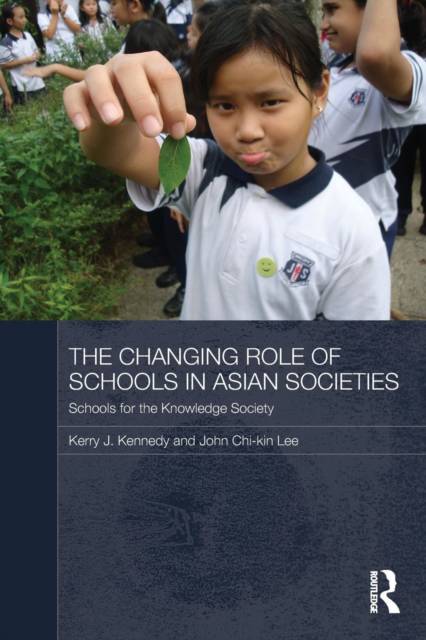
- Retrait gratuit dans votre magasin Club
- 7.000.000 titres dans notre catalogue
- Payer en toute sécurité
- Toujours un magasin près de chez vous
- Retrait gratuit dans votre magasin Club
- 7.000.0000 titres dans notre catalogue
- Payer en toute sécurité
- Toujours un magasin près de chez vous
The Changing Role of Schools in Asian Societies
Schools for the Knowledge Society
John Chi-Kin LeeDescription
Walk into a classroom in Tokyo, New York, London or Rotterdam, and the similarities in structure, activity, purpose and style will outweigh differences in language, dress and ethnic characteristics. Learning is regulated and rationed, teaching is a process or one-way transmission of knowledge, students need to be docile and conformist, assessment needs to sift and sort the bright from the not-so-bright, and rewards will be given to those who successfully negotiate this regime. But are these the kinds of places that can meet the needs of the 'net generation'?
The Changing Role of Schools in Asian Societies
The authors argue that the future of Asian societies depends on a transformation that requires a fundamental restructuring of schools as we know them while maintaining their long-held cultural values. This valuable insight:
- provides an overview of educational issues in Asian societies
- establishes a broad theoretical framework in which these issues can be understood
- contextualizes issues by providing country case studies
- acknowledges the important role of culture influencing educational priorities.
It should be of interest to all those working in education policy and comparative education.
Spécifications
Parties prenantes
- Auteur(s) :
- Editeur:
Contenu
- Nombre de pages :
- 240
- Langue:
- Anglais
Caractéristiques
- EAN:
- 9780415586887
- Date de parution :
- 31-03-10
- Format:
- Livre broché
- Format numérique:
- Trade paperback (VS)
- Dimensions :
- 156 mm x 234 mm
- Poids :
- 344 g

Les avis
Nous publions uniquement les avis qui respectent les conditions requises. Consultez nos conditions pour les avis.






